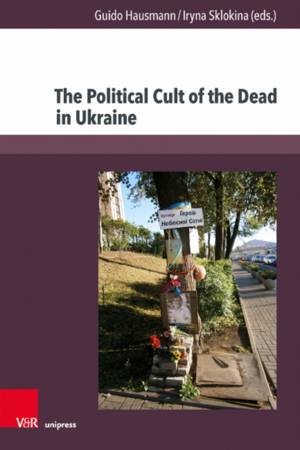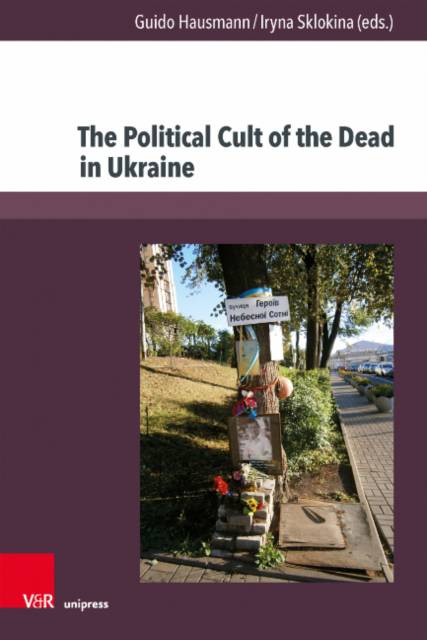
- Afhalen na 1 uur in een winkel met voorraad
- Gratis thuislevering in België vanaf € 30
- Ruim aanbod met 7 miljoen producten
- Afhalen na 1 uur in een winkel met voorraad
- Gratis thuislevering in België vanaf € 30
- Ruim aanbod met 7 miljoen producten
The Political Cult of the Dead in Ukraine
Traditions and Dimensions from the First World War to Today
Hardcover | Engels | Kultur- und Sozialgeschichte Osteuropas / Cultural and Social History of Eastern Europe | nr. 14
€ 71,95
+ 143 punten
Omschrijving
The Ukrainian Euromaidan in 2013-14 and the ongoing Russian-Ukrainian war in the Eastern part of the country have posed new questions to historians. The volume investigates the relevance of the cults of the fallen soldiers to Ukraine's national history and state. It places the dead of the Euromaidan and the forms and functions of the emerging new cult of the dead in the context of older cults from pre-Soviet, Soviet and post-Soviet times from various Ukrainian regions until the end of the presidency of Petro Poroshenko in 2019. The contributions emphasize the importance of the grassroot level, of local and regional actors or memory entrepreneurs, myths of state origin and national defense demanding unity, and the dynamics of commemorative practices in the last twenty years in relation to pluralist and fragmented processes of nation- and state-building. They contribute to new conceptualizations of the political cult of the dead.
Specificaties
Betrokkenen
- Uitgeverij:
Inhoud
- Aantal bladzijden:
- 302
- Taal:
- Engels
- Reeks:
- Reeksnummer:
- nr. 14
Eigenschappen
- Productcode (EAN):
- 9783847113836
- Verschijningsdatum:
- 6/12/2021
- Uitvoering:
- Hardcover
- Formaat:
- Genaaid
- Afmetingen:
- 155 mm x 229 mm
- Gewicht:
- 557 g

Alleen bij Standaard Boekhandel
+ 143 punten op je klantenkaart van Standaard Boekhandel
Beoordelingen
We publiceren alleen reviews die voldoen aan de voorwaarden voor reviews. Bekijk onze voorwaarden voor reviews.









